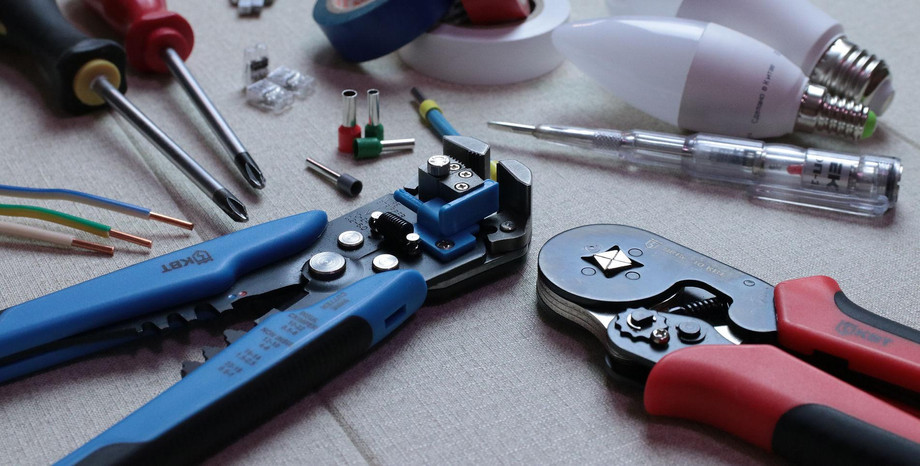Home renovations are a popular way to improve living spaces, increase property value, and adapt to changing lifestyles. While many homeowners focus on aesthetics and functionality, one aspect that often goes overlooked is electrical renovations. Upgrading your home's electrical system during a renovation not only enhances safety but also ensures your property is equipped to handle modern electrical demands. In this article, we will explore the importance of electrical renovations, their benefits, and key considerations when undertaking such projects.
The Significance of Electrical Renovations
Safety: Outdated electrical systems are a safety hazard. They may not have the capacity to handle today's electrical load, leading to overheating and potential fires. Moreover, older wiring systems may lack necessary safety features like Ground Fault Circuit Interrupters (GFCIs) and Arc Fault Circuit Interrupters (AFCIs), which protect against electrical faults.
Energy Efficiency: Modern electrical systems are more energy-efficient. Upgrading your home's electrical components can lead to lower energy bills and a reduced environmental impact. This includes installing LED lighting, programmable thermostats, and energy-efficient appliances.
Increased Property Value: A renovated and up-to-date electrical system can significantly increase the value of your property. Homebuyers are often willing to pay more for a home with modern, reliable, and safe electrical systems.
Convenience and Functionality: Upgraded electrical systems allow you to enjoy the convenience of modern technology. You can install smart home devices, home automation systems, and more, making your life easier and more enjoyable.
Compliance: Building codes and regulations change over time to enhance safety and efficiency. An electrical renovation ensures your home complies with current standards, which is crucial for homeowner insurance and safety inspections.
Electrical Renovations: Key Considerations
Before embarking on an electrical renovation project, consider the following factors:
Scope of Renovation: Determine the scope of your electrical renovation. Are you looking to update the entire electrical system, or do you have specific areas in mind, such as the kitchen or the bathroom? Identifying your renovation objectives will help you plan more effectively.
Budget: Establish a clear budget for your electrical renovations. Costs can vary significantly depending on the extent of the work. It's advisable to consult with an electrician to get an accurate estimate.
Permits and Regulations: Check local building codes and regulations to ensure compliance. Electrical renovations often require permits, inspections, and adherence to specific standards. Violating these regulations can lead to costly fines and safety issues.
Professional Assistance: Electrical work is not a DIY project for most homeowners. It's crucial to hire a licensed and experienced electrician who can assess your electrical system, provide expert advice, and perform the necessary upgrades safely and efficiently.
Design and Functionality: Consider the design and functionality you want to achieve with your electrical renovation. This could involve planning the placement of outlets, switches, and lighting fixtures to maximize convenience and aesthetics.
Safety Measures: Safety should be a top priority. Ensure that your electrician installs safety devices like GFCIs, AFCIs, and surge protectors to protect your home and appliances.
Energy Efficiency: Incorporate energy-efficient solutions into your electrical renovations. This includes LED lighting, energy-efficient appliances, and smart home devices that can help reduce your energy consumption.
Common Electrical Upgrades
Here are some of the most common electrical upgrades homeowners consider during renovations:
Electrical Panel Upgrade: Older homes may have outdated electrical panels that can't handle modern electrical loads. Upgrading to a larger capacity panel ensures you have enough power for your appliances and electronics.
Rewiring: Replacing old and deteriorating wiring with modern, safe materials is a significant upgrade. This can improve the safety and reliability of your electrical system.
Outlets and Switches: Upgrading to modern outlets and switches can enhance convenience and safety. Consider adding USB outlets, dimmer switches, or smart switches for added functionality.
Lighting: Modernizing your lighting with energy-efficient LED fixtures not only saves energy but also adds a contemporary touch to your home. Consider adding recessed lighting, pendant lights, or under-cabinet lighting for an updated look.
Smart Home Integration: If you're interested in smart home technology, consider integrating it into your electrical renovations. This can include installing smart thermostats, security systems, lighting control, and voice-activated assistants for added convenience and security.
Electrical Safety Devices: Ensure your home is equipped with safety devices like smoke detectors, carbon monoxide detectors, GFCIs, and AFCIs. These devices are essential for protecting your family and property.
Benefits of Professional Assistance
While minor electrical projects can often be tackled by DIY enthusiasts, electrical renovations are best left to professionals for several reasons:
Safety: Electrical work can be dangerous, especially when dealing with the main electrical panel or rewiring. Professionals are trained to handle these tasks safely.
Regulations: Licensed electricians are well-versed in local building codes and regulations, ensuring that your renovation complies with legal standards.
Efficiency: Professionals work efficiently, completing your renovation in a timely manner while minimizing disruptions to your daily life.
Warranty and Guarantee: Many professional electricians provide warranties and guarantees on their work, giving you peace of mind that any issues will be promptly addressed.
For more info:-
Professional Electrician Service
Experienced Canberra Electricians
Residential Electrician Canberra





Comments